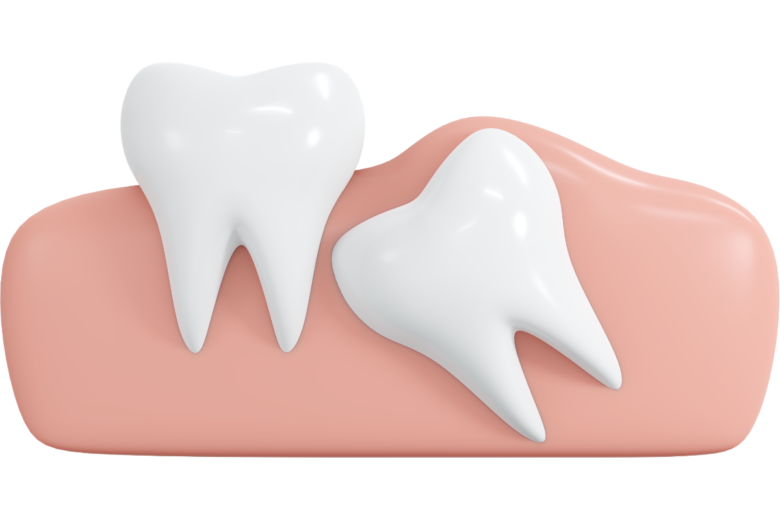Maintaining healthy gums is essential for overall oral health and wellbeing. While brushing and flossing are key components of good oral hygiene, what you eat plays a significant role in the health of your gums. A balanced diet rich in essential nutrients can strengthen the gum tissues, fight inflammation, and prevent the development of gum disease, which is a leading cause of tooth loss.
Your gums are highly sensitive to the foods you consume, with certain nutrients playing a direct role in their ability to resist infections and maintain proper function. Conversely, poor dietary choices—particularly those high in sugar and processed foods—can contribute to gum inflammation, bleeding, and other dental issues. In fact, researchers have found that poor nutrition, combined with other factors like smoking and poor oral hygiene, can increase the risk of gum disease.
In this article, we will explore how your diet can support the health of your gums, highlighting the key nutrients and foods that promote strong, healthy gum tissue. By understanding the vital connection between diet and gum health, you can make informed choices to keep your gums in top condition and reduce your risk of gum disease.
Your diet does more than just fuel your body—it directly impacts the health of your gums and teeth. Many people focus solely on brushing and flossing, but neglecting the nutritional aspect of oral care can have significant consequences. Eating the right foods can give your gums the nutrients they need to stay strong, fight off harmful bacteria, and heal from any potential damage. On the other hand, poor dietary habits can set the stage for gum problems, including inflammation, bleeding, and even tooth loss.
While genetics and lifestyle choices certainly influence gum health, nutrition plays an indispensable role in maintaining a balanced, resilient oral environment. With the proper nutrients, your gums can ward off infections, reduce inflammation, and recover more effectively from injury or irritation. In this article, we will take a closer look at how specific foods and nutrients impact gum health and provide practical tips for incorporating them into your daily routine. Whether you’re looking to prevent gum disease or simply maintain optimal gum health, understanding the relationship between nutrition and your gums is essential for long-term oral wellness.
Essential Foods to Strengthen the Gums
To keep your gums strong and healthy, it’s important to include foods in your diet that are rich in specific nutrients known to support gum health. These foods help maintain the integrity of gum tissues, promote healing, and reduce inflammation. Fresh fruits and vegetables, lean proteins, and foods rich in healthy fats are particularly beneficial.
Some of the best choices for promoting gum health include leafy greens like spinach and kale, which are high in vitamins and minerals, as well as fatty fish such as salmon, which provides omega-3 fatty acids that help reduce inflammation. Adding foods rich in antioxidants, such as berries, nuts, and seeds, can also help combat oxidative stress, which can damage gum tissues over time.
The Role of Vitamin C in Oral Health
Vitamin C is one of the most vital nutrients for maintaining healthy gums. It plays a key role in collagen production, which is essential for the integrity and elasticity of gum tissue. Collagen helps your gums stay firm and resilient, preventing gum recession and bleeding. Vitamin C is also a powerful antioxidant that helps to fight inflammation and protect the gums from harmful bacteria.
Citrus fruits, bell peppers, strawberries, and broccoli are excellent sources of vitamin C. A deficiency in this vitamin can lead to weakened gums, increased susceptibility to infections, and conditions such as gingivitis, which can progress to more serious gum disease if not addressed.
Minerals that Contribute to Gum Resistance (Calcium, Magnesium, and Zinc)
Minerals play a crucial role in maintaining the strength and resilience of your gums. Calcium, magnesium, and zinc are particularly important in protecting and strengthening gum tissues.
- Calcium is essential for the structural health of teeth and gums, helping to maintain their strength and preventing gum recession. Dairy products like milk, cheese, and yogurt, as well as fortified plant-based alternatives, are rich in calcium.
- Magnesium is important for maintaining a healthy balance of calcium in the body and supports the healing process of gum tissues. Foods like nuts, seeds, legumes, and whole grains are excellent sources of magnesium.
- Zinc helps to strengthen the immune system and supports the body’s ability to heal damaged tissues, including the gums. Zinc is found in foods such as meat, shellfish, legumes, and seeds.
Anti-inflammatory Foods and Their Effect on Gums
Inflammation is one of the primary contributors to gum disease, making it essential to incorporate anti-inflammatory foods into your diet. Chronic inflammation can lead to gingivitis, periodontitis, and other gum-related problems. By consuming foods that fight inflammation, you can help reduce gum swelling, bleeding, and discomfort.
Foods such as turmeric, ginger, green tea, and berries contain compounds that have potent anti-inflammatory properties. Omega-3 fatty acids found in fatty fish, flaxseeds, and walnuts also have anti-inflammatory effects that can help protect your gums from chronic irritation.
The Impact of Sugar and Processed Foods on Gum Health
While some foods can help maintain healthy gums, others can contribute to gum disease. Sugar and processed foods are major culprits in the development of gum problems. When you consume sugary foods, they fuel the harmful bacteria in your mouth, which produce acids that irritate and damage the gums. This can lead to plaque buildup, cavities, and gum inflammation.
To protect your gum health, it’s important to limit your intake of sugary snacks, sugary beverages, and highly processed foods. Instead, focus on whole, unprocessed foods that nourish both your body and your gums.
The Role of Fiber-Rich Foods in Maintaining Healthy Gums
Fiber is another important component of a diet that supports gum health. Fiber-rich foods not only improve digestion but also help to clean your teeth and gums as you chew. The physical action of chewing fibrous foods stimulates saliva production, which helps neutralize acids in the mouth and wash away food particles and bacteria.
Fruits and vegetables like apples, carrots, and celery are excellent sources of fiber. These foods also provide essential nutrients that support gum health and reduce the risk of inflammation and infection.
The Importance of Hydration for Oral Health
Staying hydrated is crucial for maintaining healthy gums. Saliva is essential for keeping the mouth clean and preventing bacterial growth. A dry mouth, caused by dehydration, can lead to an increased risk of plaque buildup, gum disease, and bad breath. Drinking plenty of water helps maintain saliva production and rinse away harmful bacteria.
In addition to water, herbal teas like green tea can also be beneficial for oral health due to their antioxidant properties. Avoiding sugary drinks is important, as they can contribute to tooth decay and gum problems.
Dietary Supplements to Boost Gum Health
In addition to a balanced diet, certain dietary supplements can help support the health of your gums. Supplements containing vitamin C, calcium, magnesium, zinc, and omega-3 fatty acids are all beneficial for gum health. These nutrients can help reduce inflammation, promote healing, and protect the gums from infections.
If you’re not able to get enough of these nutrients from your diet, consider speaking to a healthcare professional or dentist about the possibility of adding supplements to your routine. However, it’s important to remember that supplements should complement a healthy diet, not replace it.
How Protective Foods Help Prevent Gum Diseases
Certain foods have protective properties that can help prevent gum diseases like gingivitis and periodontitis. Foods rich in antioxidants, such as leafy greens, berries, and nuts, help fight oxidative stress that can damage gum tissues. Probiotic-rich foods like yogurt and kefir support the balance of healthy bacteria in the mouth, which can prevent harmful bacteria from causing gum inflammation and disease.
By including a variety of protective foods in your diet, you can strengthen your gums and lower your risk of developing gum-related problems. Combining good dietary habits with regular oral hygiene practices can provide long-lasting benefits for your gum health.
How to Integrate These Foods into Your Daily Diet for Healthy Gums
Achieving and maintaining healthy gums requires a holistic approach, where diet plays a pivotal role. By incorporating the right foods and nutrients into your daily routine, you can strengthen your gum tissues, reduce inflammation, and prevent gum disease. The key to success lies in consistency and making mindful choices when it comes to what you eat.
To begin, focus on including a variety of nutrient-rich foods that support gum health, such as vitamin C-rich fruits, fiber-filled vegetables, and foods packed with essential minerals like calcium, magnesium, and zinc. Anti-inflammatory foods like turmeric, green tea, and fatty fish should be regular components of your meals to help reduce gum irritation and protect against infections.
It’s also important to be mindful of the foods that can harm your gums, such as sugary snacks and processed foods. Limiting these foods, along with staying hydrated by drinking water throughout the day, will further contribute to maintaining healthy gums.
For those who may not always be able to obtain all necessary nutrients from their diet, supplements can provide additional support. However, it’s important to remember that supplements should complement a balanced diet rather than replace it.
Incorporating these habits into your daily life may seem challenging at first, but with planning and commitment, it becomes easier over time. By making small, manageable changes—such as swapping out sugary snacks for fruits and vegetables or choosing calcium-rich dairy products—you can significantly improve the health of your gums and overall oral hygiene.
In conclusion, the health of your gums is directly influenced by the foods you eat. By integrating the right nutrients into your diet and avoiding harmful foods, you can enjoy not only healthier gums but also a brighter smile and better oral health for years to come.
The connection between diet and gum health cannot be overstated. By consciously selecting nutrient-dense foods and minimizing those that can contribute to gum issues, you can create a solid foundation for long-term gum health. Consistency is key—by making healthy eating a habit, you’ll not only reduce the risk of gum disease but also improve your overall oral hygiene and prevent other dental complications.
Remember, healthy gums are a reflection of a well-balanced lifestyle that includes proper nutrition, regular oral care, and staying hydrated. As you incorporate more gum-friendly foods into your diet, consider your gums as an integral part of your body’s overall wellbeing. With the right diet, your gums can remain strong, resilient, and ready to support a lifetime of healthy smiles. By prioritizing gum health through smart food choices, you are investing in your oral health for the long term, giving yourself the confidence of a healthy, vibrant smile.




